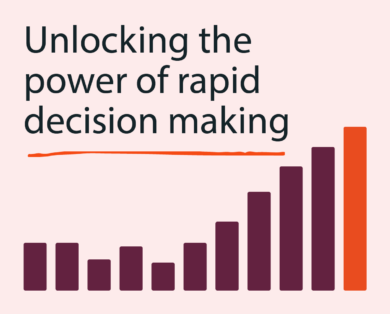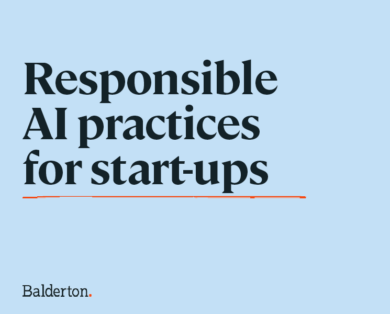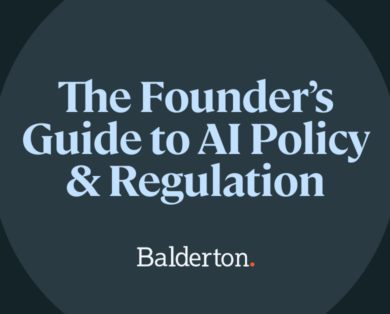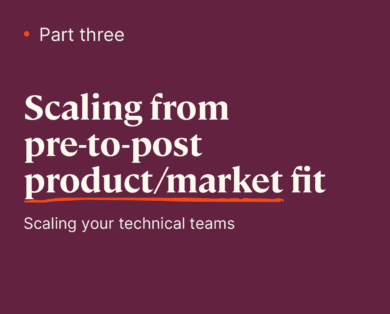- 09 April, 2025
When we published the Founder’s Guide to AI Policy and Regulation in November 2024, we knew it wouldn’t be long before the landscape shifted and we’d need to make tweaks to keep up with new policies and frameworks. Fast forward one week after publishing, and President Trump was elected…
Since then, the noise surrounding AI regulation has only gotten louder, and we’ve seen a clear shift in the narrative (goodbye “AI safety”, hello “AI action”). But beneath the headlines, has much actually changed?
We’ve taken a detailed look at the latest developments in AI regulation in the UK, US and EU, and digested these in an updated version of the guide. Don’t worry, we’ve cut through the noise and zoomed in on what founders actually need to know.
And if you only have time for the highlight reel, keep reading below.
The US: A new direction under a new administration
Unsurprisingly, Trump’s arrival in the White House has altered the direction of travel on AI regulation at the Federal level, sweeping away Biden’s incremental moves towards greater oversight and accountability by repealing the Biden-era Executive Order on AI, and promoting market-driven acceleration and US dominance in the global race through a new Executive Order on AI and a forthcoming “AI Action Plan”.
Advice for founders: The Trump administration is still in the process of establishing a comprehensive AI policy agenda, and it’s too soon to say definitively what the impact of this will be on the sector. Be aware that while Federal-level policymaking is being concentrated more heavily in the Executive branch of government, litigation still has an important role to play in defining AI regulation, as evidenced in the outcome of the first AI & copyright case heard at the Federal level (which went in favour of the news publisher Thomas Reuters).
As always, however, look to individual States for a more nuanced picture. For example, Texas, a traditionally Republican State, has introduced a sweeping AI Bill, while California is pushing ahead with implementing data transparency requirements for generative AI training datasets.
Advice for founders: Stay aware of the increasing patchwork of emerging legislation at the State level, both for compliance with existing laws in these markets and for the possibility of legislative spillover into other States – or even on the Federal level.
UK and Europe: The impact of a new global dynamic
The shift in US rhetoric is also impacting other markets. The EU’s AI Act now seems increasingly burdensome – particularly for SMEs and fast-growing innovators – and looks to be in tension with the EU’s wider shift towards AI competitiveness and strategic autonomy, as evidenced at the Paris AI Summit. The shift away from AI safety and towards innovation was already in train before the Trump administration but has been turbocharged by the US’s interventions at the Paris AI Summit.
Advice for founders: Expect the EU to maintain its regulatory course, but take advantage of new opportunities to plug into the EU’s innovation resources, through e.g. the “AI Factories” initiative, and look out for a potential simplification of some of the AI Act’s provisions for founders and SMEs.
The UK finds itself in a potentially exciting position if it can successfully navigate the two spheres of influence of the EU and US. So far, the UK is leaning further towards the US, prioritising innovation and investment (through the AI Opportunities Plan and Industrial Strategy) over regulation (the AI Bill has been repeatedly delayed, and regulators have been given strong ‘pro-growth’ steers from the Government).
Advice for founders: Don’t expect AI-specific regulation any time soon, but be aware that the challenges facing the UK’s economy may constrain the size of the Government’s ambitions on AI development and innovation.
Actions will speak louder than words
While governments around the world continue to take different approaches to AI regulation – with the gap between the EU and the US clearly widening – the differences are not always as stark in practice as they appear in headlines.
In some cases, we’re actually starting to see legislation introduced and enacted in key US States – such as California’s AB 1018 or Texas Responsible AI Governance Act – that aligns more with the premises of the EU AI Act. Meanwhile, the UK and EU are both responding to the economic and security challenges posed by the Trump administration by increasing their sovereign capabilities and competitiveness on AI.
Advice for founders: In this increasingly unpredictable and fragmented global landscape, don’t get overwhelmed by the noise. Instead, stay focused on the actual policies affecting your key markets.
For more top tips on navigating the rapidly-changing AI regulatory landscape, read the Founder’s Guide to AI Policy & Regulation.












